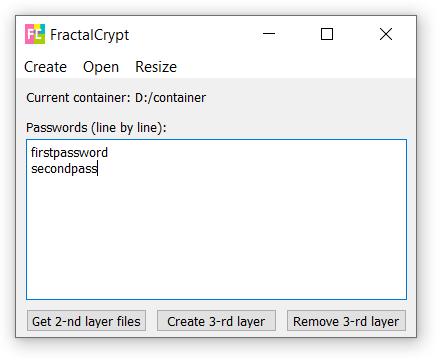this post was submitted on 21 Aug 2024
123 points (94.9% liked)
Privacy
31975 readers
1172 users here now
A place to discuss privacy and freedom in the digital world.
Privacy has become a very important issue in modern society, with companies and governments constantly abusing their power, more and more people are waking up to the importance of digital privacy.
In this community everyone is welcome to post links and discuss topics related to privacy.
Some Rules
- Posting a link to a website containing tracking isn't great, if contents of the website are behind a paywall maybe copy them into the post
- Don't promote proprietary software
- Try to keep things on topic
- If you have a question, please try searching for previous discussions, maybe it has already been answered
- Reposts are fine, but should have at least a couple of weeks in between so that the post can reach a new audience
- Be nice :)
Related communities
Chat rooms
-
[Matrix/Element]Dead
much thanks to @gary_host_laptop for the logo design :)
founded 5 years ago
MODERATORS
you are viewing a single comment's thread
view the rest of the comments
view the rest of the comments

Is it really though? I would assume there would be automated systems that can do 80% of the job. It can be as simple as a USB key holding a portable executable that can run and connect to a remote system and report back the findings which the officer can just read the report in plain English. Training, of course, is expensive and rarely do so, but automation can get somewhere close relatively inexpensive.
Even if such a thing existed, which given the analysis parameters makes it far too complex for automation (like for instance, how would such a software distinguish between old deleted data still residing in empty space and a vault file hidden in empty space without a follow up analysis of the data itself. It would probably alert the user for something, but the amount of false positives would probably lead an untrained user to ignore the alerts eventually) i would guess it doesn't, but if it did, it would have to process petabytes every day, from all over the country and the system would have to be maintained, which going by government record of informatics systems, doesn't seem likely that it would be readily available for everyone that gets stopped at a border stop consistently. It's like an anti virus search, with all the false positives it comes up with, but 100 times slower, plus the transmission of the entire disk clone file, plus the cloning process itself.
Moreover the cost of maintaining such a system when 95%+ of the population doesn't have the know how to use complex data obfuscation measures and LEO rarely obtains information out of these cursory searches for arrests. On published news articles LEO always ends up using snitches, google searches or usage of the TOR network in a given area to catch criminals. Data forensics only come into play later on. Presumably, dollar for dollar, they would probably invest in what works best instead of casting such a wide net.
In sum, I'm not cleared to know such information, but i am guessing such a thing, while technologically possible, seems economically unfeasible and liable to be used only in specific cases. If i had a border security budget, i would certainly not invest in a mega server to swift through every bit of empty and occupied space of all the randomly selected people for a search that come in through the ports of entry. However i could be wrong.